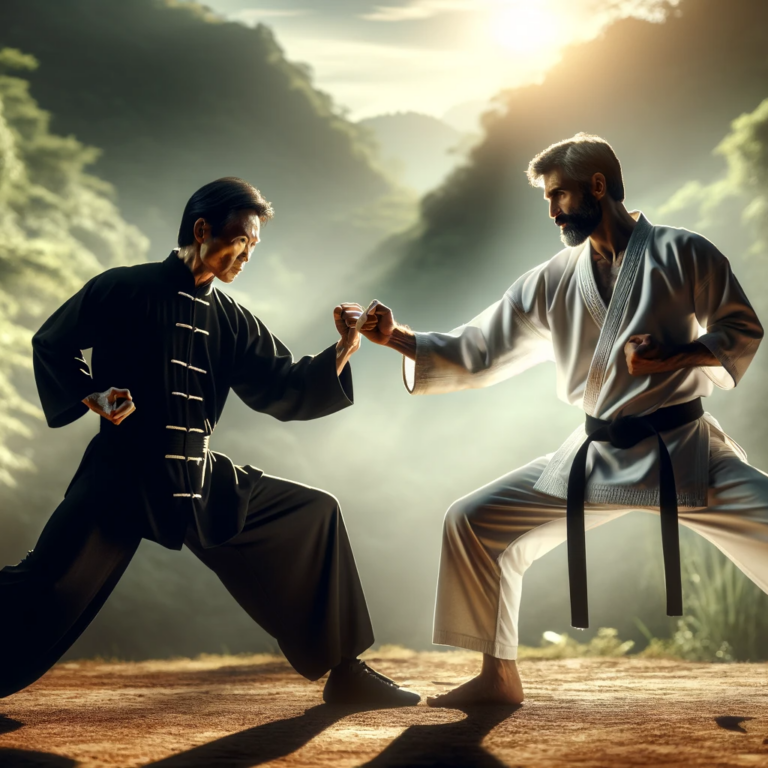Martial Arts and Mindfulness: Finding Harmony in Body and Spirit

In the fast-paced modern world, the practice of martial arts extends beyond physical training; it becomes a gateway to mindfulness—a journey of self-discovery and harmony between body and spirit. In this exploration, we delve into the profound connection between martial arts and mindfulness, uncovering how these ancient disciplines guide practitioners toward a balanced and centered existence.
- The Art of Presence: At the core of both martial arts and mindfulness is the cultivation of presence. The rhythmic movements and controlled techniques demand practitioners to be fully engaged in the present moment. Through mindful awareness, martial artists learn to focus their attention, heightening their senses and sharpening their responses.
- Breath as a Foundation: Mindfulness in martial arts often begins with the breath. Controlled and intentional breathing not only enhances physical performance but also serves as a powerful tool for cultivating mindfulness. The synchronization of breath with movement becomes a meditative practice, fostering a deep connection between the mind and body.
- Moving Meditation: Martial arts itself is a form of moving meditation. Whether it’s the slow and deliberate movements of Tai Chi or the dynamic and explosive techniques of Karate, each form requires a state of mindfulness. The act of moving becomes a meditation, promoting mental clarity and a heightened sense of awareness.
- Centering Techniques: Mindfulness in martial arts includes centering techniques that bring practitioners back to their core. Grounding stances and rooted postures create a sense of stability, both physically and mentally. This centering allows practitioners to navigate challenges with calmness and resilience.
- Emotional Regulation: Mindfulness through martial arts extends to emotional regulation. Training teaches practitioners to channel their emotions effectively, transforming negative energy into focused and controlled actions. This emotional intelligence becomes a valuable life skill, enhancing interpersonal relationships and overall well-being.
- Zen Philosophy: Many martial arts disciplines are influenced by Zen philosophy, emphasizing the importance of mindfulness and meditation. Practitioners are encouraged to embrace the concept of “no-mind,” a state where conscious thought gives way to instinctual and spontaneous action. This Zen approach fosters a deep sense of inner peace and clarity.
- Life Beyond the Dojo: The mindfulness cultivated in martial arts transcends the training space. Practitioners carry the principles of presence, breath, and centering into their daily lives. This mindful approach becomes a guiding force in decision-making, stress management, and the pursuit of a balanced lifestyle.
Conclusion:
“Martial Arts and Mindfulness” form a symbiotic relationship that goes beyond the physical aspects of combat. Together, they guide practitioners on a transformative journey toward self-discovery, balance, and harmony. In the quiet moments of meditation, the disciplined repetition of forms, and the intentional breaths, martial artists find a profound connection between body and spirit. As we explore the intertwining of martial arts and mindfulness, we uncover a holistic approach to life—one where the disciplined mind and the trained body coalesce, creating a state of profound harmony.

